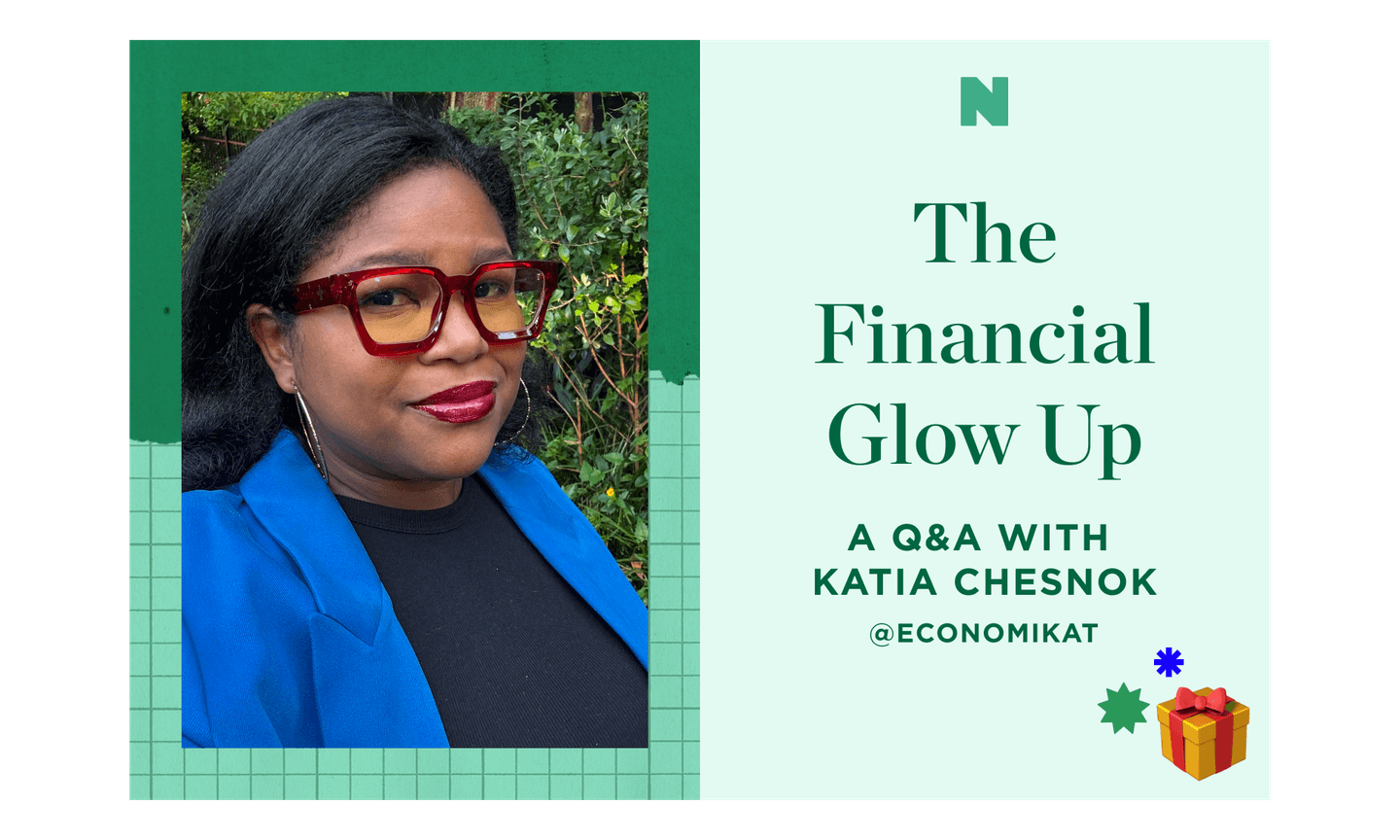
You might have encountered Katia Chesnok, or @economikat, on your social media feeds, telling you that you don’t need more stuff — you’re just bored.
If you haven’t heard of her, she calls herself a “de-influencer” whose advice comes from experience. Impulse spending while bored led her to $40,000 in credit card debt, she said. She paid it off, and now she helps her followers on TikTok and Instagram learn from her mistakes.
“We scroll. We feel empty. We’re searching for that dopamine boost, and we try to buy our way out of it,” Chesnok told me.
All that clutter around your house? It used to be money, she said. Those new gift ideas and cute filler presents? No one remembers them.
Responses have been edited for length and clarity.
Focus on moments, not merchandise
Q: The holidays are often seen as a time of joy — and financial stress. What does a holiday “financial glow up” look like to you?
A: This might be an unpopular opinion but a holiday financial glow up isn’t about spending more money — it’s about being mindful about our needs and expenses.
It means having clear priorities. Maybe that means skipping the family holiday matching pajamas or the new Christmas decor and using the ones we already have. The real glow up this holiday season is focusing on moments, not merchandise.
Q: Can you share a personal story of a time you got creative with your holiday budget?
A: A few years ago, I decided to do a no-gift Christmas for adults in my family. I baked, wrote letters, hosted a potluck and planned small experiences instead. No one missed the store-bought gifts, and my stress dropped to zero.
Stress less. Track more.
See the full picture: savings, debt, investments and more. Smarter money moves start in our app.

Q: What would you tell someone who’s nervous about setting gift boundaries with loved ones?
A: I set expectations early. For example I can tell them: ‘I’m keeping gifts simple this year.’ Most people respect it, and some even help me create DIY gifts. You’re not cheap for having boundaries. You’re smart for protecting your peace, and that includes your financial peace.
Q: The holidays are peak influencer season — constant sales, gift guides, affiliate links. How does your deinfluencer philosophy show up during this time of year?
A: I remind my audience that you don’t have to buy to belong. Every sale post is designed to make you feel like you’re missing out, even when you’re not.
Q: Retailers are masters at creating FOMO — countdown timers, “only 3 left” messages, early access emails. What are your favorite ways to tune out that noise?
A: Unsubscribe from the emails. Mute the ads. Replace scrolling with something that gives you a real dopamine boost, like going for a walk, cleaning your space, baking or journaling. Find real-life sources of satisfaction so that you’re not chasing fake ones online. The less you expose yourself to ‘hurry, last chance’ marketing, the calmer your wallet (and mind) will be.
Q: What do you think about the growing number of people who rely on financial advice from “finfluencers” online?
A: I have mixed opinions about this. While I love that more people are talking about money and finance online — and openly, after being a taboo for so many years — I don’t like that some finfluencers are giving financial advice without being registered to do so, or that some of them are selling a get-rich-quick scheme.
Some of them are telling you which stocks to buy, telling you to buy crypto, etc. Don’t completely believe everything you see online. Stay curious and do your own research, especially when it comes to your money. Always protect your finances.
Q: When should people realistically start budgeting or saving for holiday spending? If someone hasn’t budgeted for the holidays, what should they do now?
A: Buy now, pay later is basically a soft loan disguised as convenience. If you can’t afford it now, you’re just borrowing from your future self. And with these payments starting to hit FICO reports, it’s not as harmless as it seems. Use BNPL only if it’s something essential and you already have the money saved. Otherwise, it’s a debt trap wrapped in pretty marketing.
Q: A lot of people justify extra spending during the holidays by thinking, “I’ll cover it with my bonus or tax refund later.” How can they still enjoy the season without a financial hangover?
A: That mindset is how short-term joy turns into long-term stress. Instead, flip it. Use your bonus to get ahead, not catch up. You can still celebrate — just set limits and focus on meaning, not volume. Use what you already have before buying anything new.
Stress less. Track more.
See the full picture: savings, debt, investments and more. Smarter money moves start in our app.













































